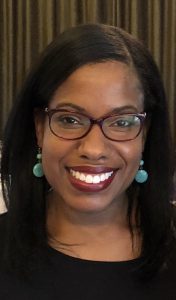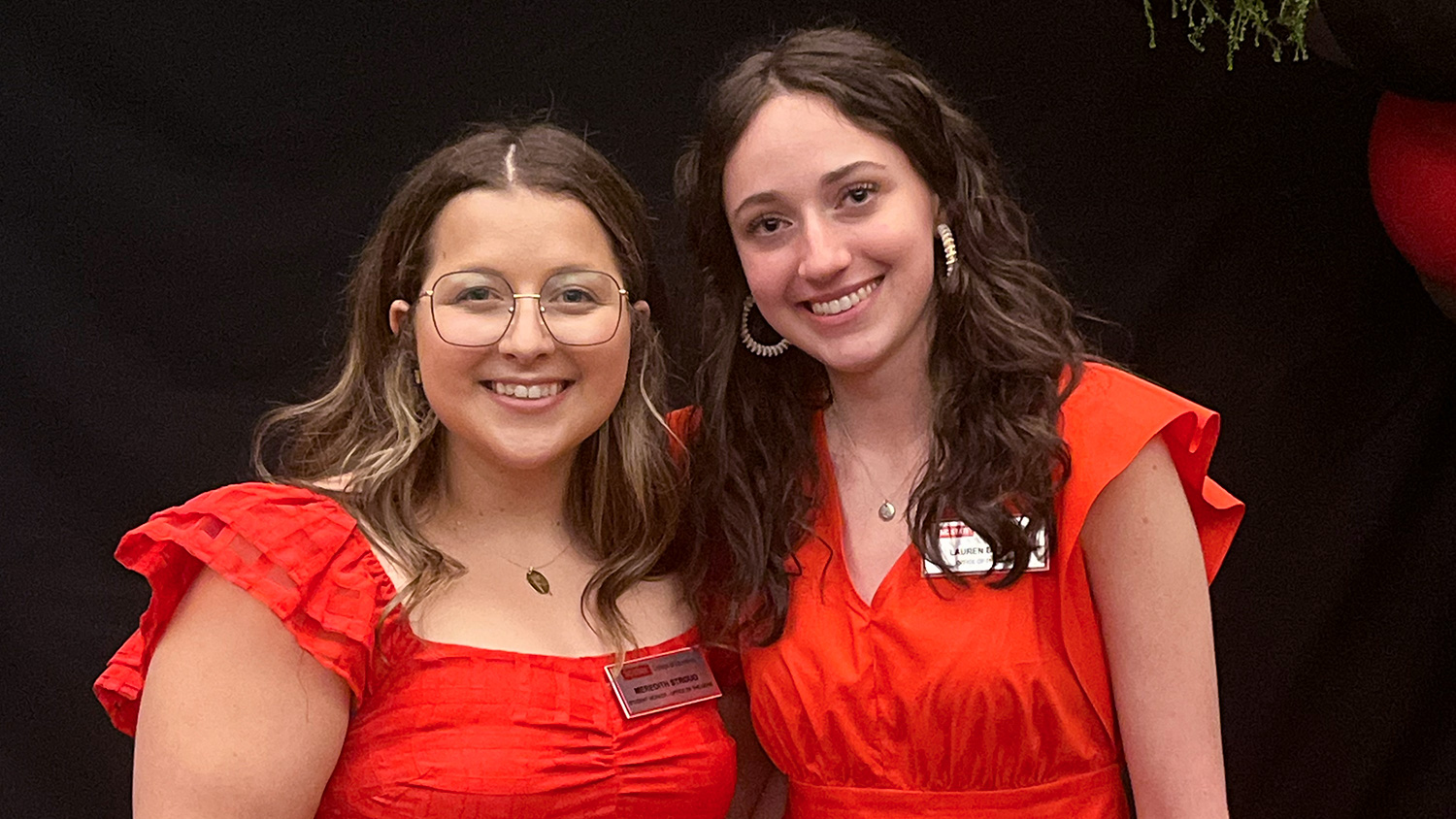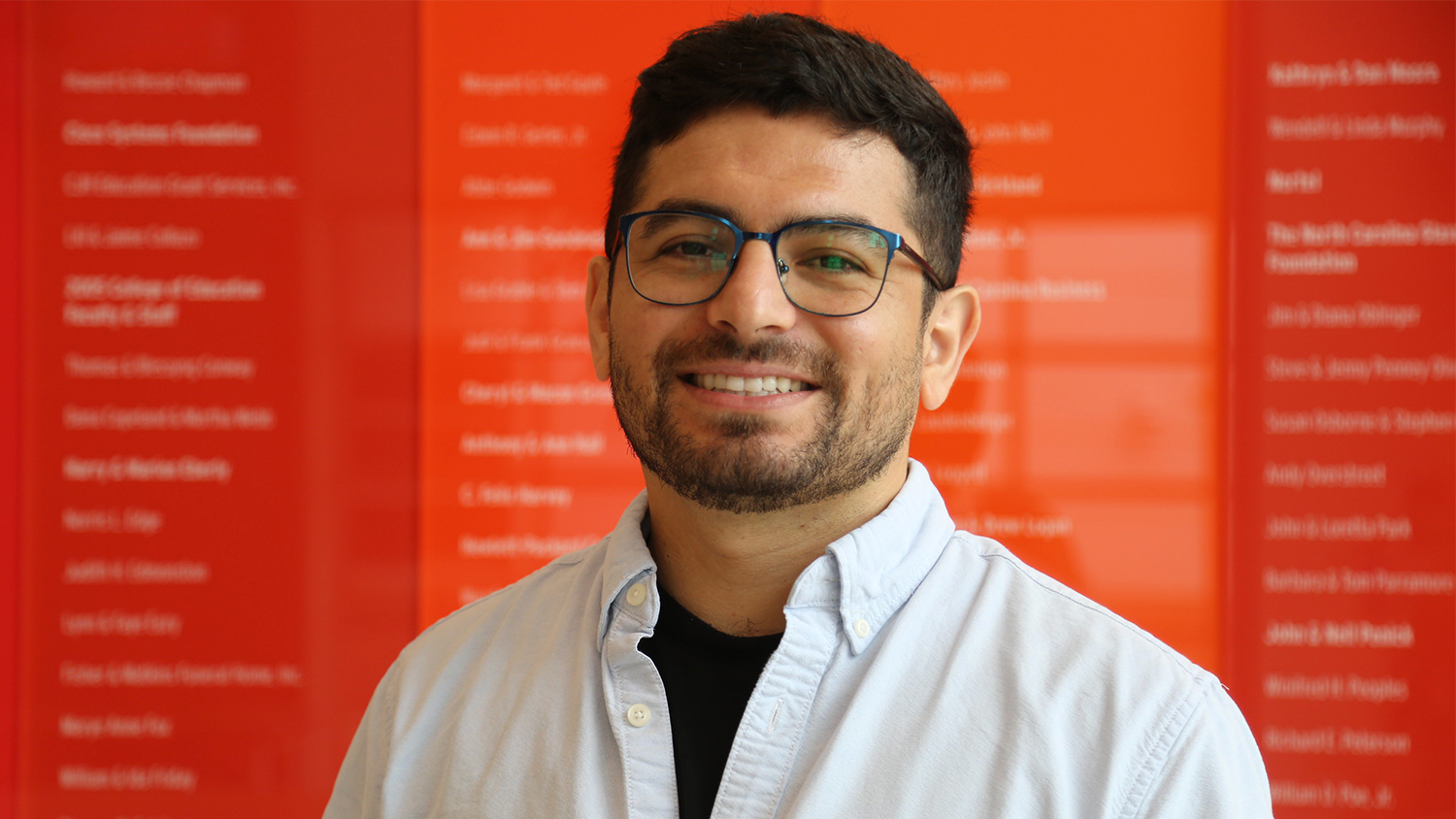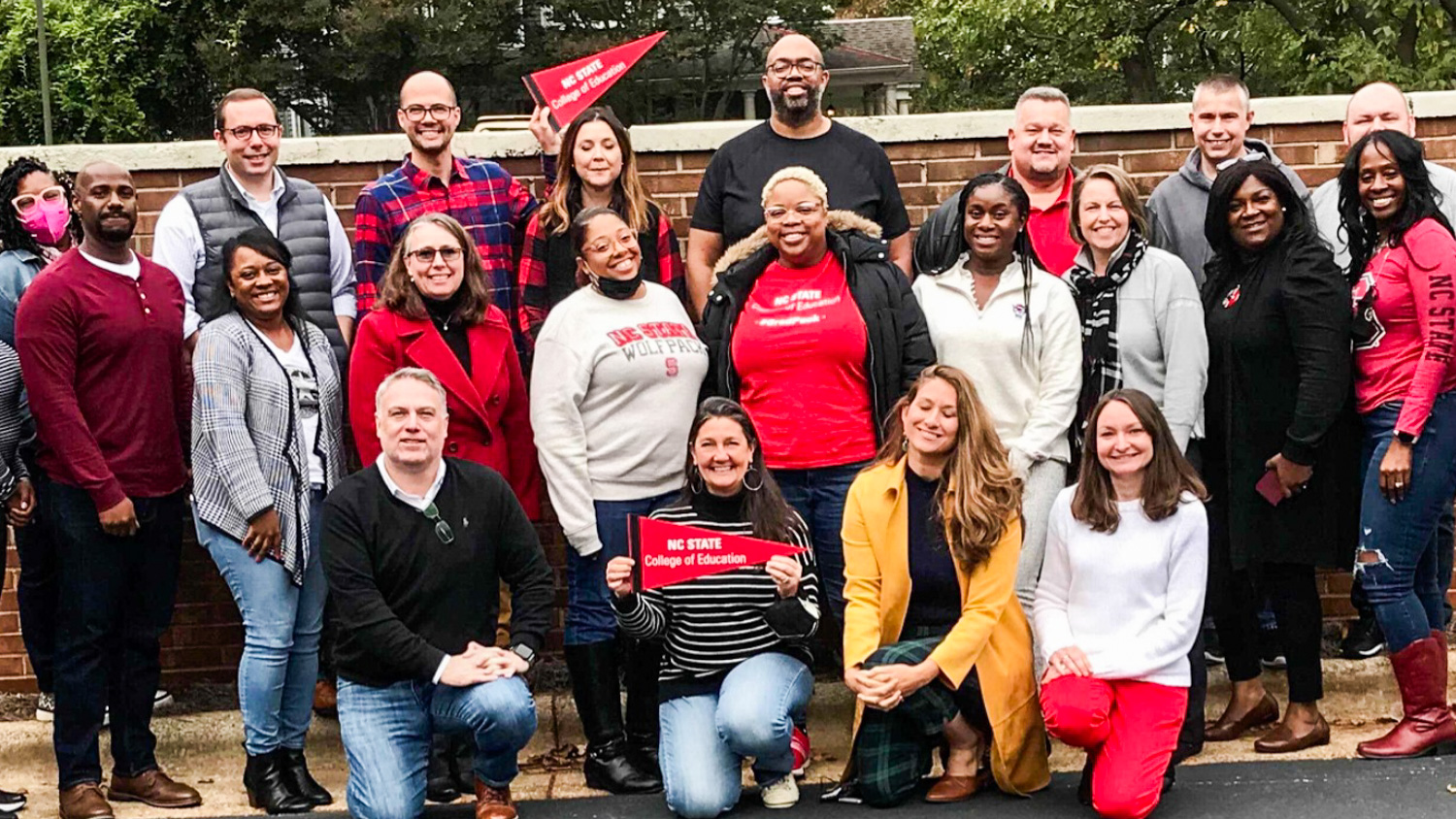Laila Thompson ’18: “I Seek to be an Inspiration”
Born prematurely and labeled as a child who would “lag behind her peers,” Laila Thompson ’18 has spent her life overcoming obstacles. Educators, she says, believed in her potential and inspired her to not be defined by her circumstances. That is why she chose education and why she continues to encourage other educators to embrace their role in helping students to achieve their dreams.
Hometown: Spring Lake, North Carolina
Field of Study: Mathematics Education
Activities (Research or Extracurricular): My research interests are (a) the relationships between physical activity, cognition, and mathematics academic performance and (b) mathematics teacher education and professional development.
I enjoy serving as a member of several professional and student organizations to include the National Council of Teachers of Mathematics, the North Carolina Council of Teachers of Mathematics, the North Carolina Chapter of the Association of Mathematics Teacher Educators, and the Black Graduate Student Association at North Carolina State University.
In my free time, I enjoy competing in Words with Friends, reading, and shopping with my daughters.
What’s Next: I am seeking a tenure-track position in the field of Mathematics Education. Meanwhile, I will continue to work as a Mathematics Instructional Coach at a local school.
Why did you choose education?
Defy the odds. Overcome the obstacles. Be an inspiration. These phrases have become my life’s mission.
With unopened eyes, translucent skin, and a bleak prognosis, I entered the world prematurely having a marginal chance of survival. Weighing little more than one pound, my parents and family held vigil over me, praying and believing that I would defy the odds. Several years and obstacles later, I entered the public school system and rewrote the label of one who would “always lag behind her peers” due to developmental delays that were inscribed on me by the physicians. I was blessed to have family and teachers who believed in my potential. They would not allow me to be defined by my ailments. I overcame each obstacle, rising to the top of my class in secondary and undergraduate schools. I chose education because stellar educators have affected my life. I have been inspired. I seek to be an inspiration.
How did the NC State College of Education impact you?
The College of Education at North Carolina State provided me with invaluable opportunities and experiences. As a STEM scholar in the College of Education: I was mentored and supported as a mathematics methods teaching assistant under the guidance of one of the most influential and prolific geometric thinkers, Dr. Karen Hollebrands.
Similarly, I was taught how to integrate dynamic technology into instruction in ways that support students’ conceptualization of mathematics by an accomplished and renowned mathematics teacher educator, Dr. Cynthia Edgington.
I was groomed by an international pillar, author, and champion for equity and conceptual teaching in elementary mathematics education, Dr. Lee Stiff. Under his direction, I served as a research assistant on a grant-funded project and assisted with the design and facilitation of several hours of professional development for elementary and middle grades mathematics teachers in North Carolina. I traveled abroad as a research ambassador to Finland where I was inspired to examine the relationships between movement and mathematics learning.
The College of Education privileged me to work with phenomenal people and gifted me with practical and professional experiences that have set the course for my continued career in mathematics education.
Why did you choose your field of study?
I chose mathematics education because I love the discipline of mathematics and am passionate — and perhaps opinionated –about how it should be taught. My experiences as a student and an educator motivated me to contribute to the effective teaching of mathematics and the preparation of future mathematics educators. Mathematics defines the world in which we live. Yet, many people have feelings of low self-efficacy about their mathematics ability. In fact, many believe that mathematics ability is static…either one is born with the gifted mind to understand mathematics or not. Perhaps, these feelings can be linked to prior bad experiences in mathematics classrooms. I believe that students’ mathematics ability is not static. Rather, with the proper support and quality instruction, everyone can understand, learn, and do mathematics.
What do you hope to accomplish in your field after graduation?
The research trajectory that I envision for my career includes a continuation of the investigation of the relationship between classroom-based physical activity and students’ mathematics performance and cognitive skills and attitudes. I plan to use existing data from my dissertation research to complete a secondary analysis of the associations between physical activity, enjoyment, and mathematics performance. In addition, I hope to investigate which types of content-related physical activity are more effective on students’ development of algebraic conceptual systems in mathematics at the elementary and middle grades for both conventional and exceptional learners. Ultimately, I hope to find empirical evidence to support (a) reform to the allocation of instructional time in mathematics classes for grades K-12 and (b) addendums to teacher education programs in the state of North Carolina to include the consideration and use of physical activity to support mathematics teaching and learning for grades K-12.
Tell us about a faculty member who has influenced you.
Many years ago as a high school teacher, I dreamed of attending North Carolina State University to learn from the author of the textbook that the state had adopted for Algebra 1. My dreams were realized. The author, Dr. Lee Stiff, has served as my advisor, mentor, and professor.
Under his tutelage, I learned about the complexities of elementary mathematics concepts and best practices for their instruction. As we worked together on the grant project, I witnessed his greatness on a consistent, unwavering basis. I watched Dr. Stiff deliver content — and pedagogy — related professional development to teachers that was relatable, insightful, and engaging. He modeled tenets of effective mathematics instruction. With diplomacy, Dr. Stiff challenged the teachers to confront issues of social justice and equity. My practice has been enhanced, my knowledge has increased, and my life has been touched by Dr. Stiff. I stand in awe of and am forever indebted to him.
What advice do you have for others considering education?
Education is one of the most rewarding careers! Of course, it is not without its challenges. Therefore, I would urge those who are considering education to remain mindful of the gravity of the field. In my opinion, education is both a craft and a calling. Educators have the potential to shape the course of another’s life. Educators have the potential to give a student the tools that he/she needs to realize his/her dreams. The educators that help to unlock others’ potential are the educators who never rest on laurels, who are life-long learners, who remain passionate about education, and who remain altruistic. I advise prospective educators to ponder the former statement. As I reflect on my experiences as the premature baby, as a stigmatized child, as the daughter of a divorcee…, and the list continues, I am keenly aware of the influence of educators and of education on my life. The support of my family and teachers lifted me and continues to lift me. Education has been my balm, my saving grace, my divine purpose, and my legacy.
- Categories:



